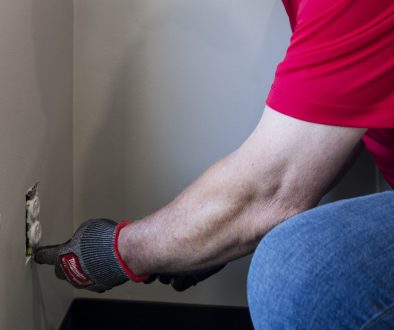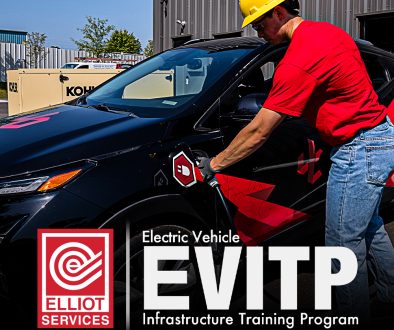What’s Involved in an Electrical Inspection?
Electricity is essential, but it’s also a hidden danger because your home’s wiring runs behind walls and through crawl spaces. You can’t see the wear and tear, but it develops nonetheless, making regular electrical inspections crucial for ensuring your family’s safety.
Inspections are also ideal after renovations or buying a new home, and they’re often the easiest way to solve strange electrical issues like breakers that keep tripping. We’ll help you plan for an inspection by explaining:
- Why electrical inspections are important
- Key components of an electrical inspection
- Common issues that can cause an electrical inspection to fail
- How much does an electrical inspection cost?
- When to schedule an electrical inspection
We’ll break down everything you need to know so your next inspection is as stress-free as possible.
Ensure Your Electrical System Is Safe — Schedule an Inspection With Elliot Services Today!
Keep your electrical system in peak condition with an inspection from Elliot Services. Our 75 years of experience ensures your lights stay on and your home remains safe.
Why Electrical Inspections Are Important
Homes develop wear and tear over time. Caulking comes loose, paint chips off, and floorboards loosen — these are all typical parts of your home maintenance checklist. However, your home’s wiring, outlets, and fixtures also develop wear and tear, which lies hidden inside walls and crawlspaces, potentially leading to fire or electric shock.
Your electrical system needs regular maintenance, just like the rest of your home, and a professional inspection goes through a detailed electrical checklist to ensure everything is in good condition. Inspections help maximize your home’s energy efficiency while ensuring it’s safe, up to code, and compliant with your insurance policy’s regulations.
Key Components of an Electrical Inspection
Wondering what to expect? Here’s a rough electrical inspection checklist. Your licensed electrician will:
- Look for loose, frayed, or damaged wiring and connections
- Check that all outlets and switches are properly grounded
- Ensure outlets in wet areas have GFCIs
- Ensure outlets in living areas have AFCIs
- Check all components in your main panel, such as circuit breakers
- Test smoke and carbon monoxide detectors
- Look for signs of issues such as overheating and overloading
Any additional electrical features in your home, such as induction cooktops, will also have to be examined, so the exact scope of an inspection depends on your home’s features and design. By the end, you can be sure everything complies with National Electrical Code standards.
Common Issues That Can Cause an Inspection to Fail
What will fail an electrical inspection? The most common issues are outdated or damaged wiring, especially in older homes that haven’t had any significant renovations, as it’s not uncommon for the electrical system to have been ignored for years.
Other common issues include:
- Overloaded circuits
- Overcrowded electrical panels
- Faulty or missing GFCIs and AFCIs
- Incorrect grounding or bonding
- Improperly wired outlets and switches
- Incorrect outlets for high-energy appliances
- Unapproved DIY work
Many things can go wrong with a home’s electrical system, and if you are performing an inspection for the first time on a new home, you might catch issues you never expected. Fixing these issues is essential for safety and code compliance.
How Much Does an Electrical Inspection Cost?
Electrical inspection costs range from about $100 to $400 for a basic inspection. The exact cost depends on:
- Home size
- Number of circuits, fixtures, and outlets
- Local regulations (some municipalities have stricter code standards)
- Electrical system age and condition
Comprehensive inspections include add-ons like thermal imaging and load testing that generally increase the overall costs. However, these additional tests are often needed if you’re buying a new home or your current home is 25+ years old. They’re also helpful for diagnosing the cause behind issues like flickering lights and frequent breaker trips.
When to Schedule an Electrical Inspection
You should generally schedule an electrical inspection every 3 to 5 years, but older homes benefit from more frequent inspections (ask your electrician for ideal timing). Beyond regular inspections, consider scheduling one at any time if you:
- Buy or sell a home (especially if buying a home over 25 years old)
- Complete major renovations or upgrades
- Experience unexplained electrical issues
Most importantly, be sure to schedule your inspection with an experienced, reliable company like Elliot Services to ensure nothing is missed or overlooked!
Protect Your Home With a Professional Electrical Inspection From Elliot Services!
Trust Elliot Services, your licensed and insured electrical contractor, for expert inspections that put safety first. Our electricians check your entire home to ensure your electrical system is safe, reliable, and up to code.




